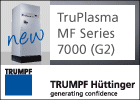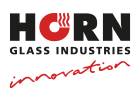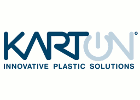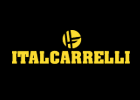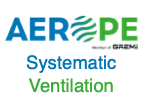Baked goods are popular, which lends them their enormous variety worldwide. Whether from the supermarket shelf or as frozen delivery – bread, bread rolls, croissants, pastries and cakes are sensitive foodstuffs that place high demands on production processes and packaging. Therefore, automation and digitalisation are also becoming increasingly important issues for the bakery industry. And the issue of sustainability has long since arrived in the sector.
Without any form of packaging, bread, bread rolls etc., are usually only available in a bakery. Freshly bought products should however also be promptly consumed. By contrast, industrially produced baked goods cannot do without packaging. Soft croissants or cakes, for example, are very sensitive to pressure, biscuits are often fragile. Robust trays are needed, while other baked goods can be safely packed inside tube bags. But packaging not only protects against mechanical hazards: Certain barrier properties allow packaging to extend shelf life without compromising on high quality. Growing mobility, an increase in single households and increasing consumption outside the home make reusable packaging for use to-go or smaller packaging sizes very attractive. Sustainable packaging materials must meet all these requirements as well, which are increasingly in demand by the market – a real challenge for the producers of baked goods and packaging. But recyclability, reduced usage of material and less packaging have long become trends within the baked goods sector, and so, monomaterial film, paper-based solutions and cardboard packaging with biobased coatings have already become industry staples.
Europe dominates the consumption of baked goods
Statista has determined the turnovers for the production of baked goods within the European Union: According to the results, Germany with a turnover of 22.7 billion euros and France with 21.5 billion euros are at the top, followed by Italy (6.7 billion euros), Spain (5.8 billion euros) and Poland (4.7 billion euros). On the global market for baked goods, according to Mordor Intelligence, Europe generates the largest share of turnover. According to the market researchers’ information, the developed markets in Western Europe are mature and saturated when it comes to baked goods, while the developing countries in Eastern Europe drive sales of biscuits and bread due to their high demand for convenience food products. The European baked goods market is said to be well established in terms of the supply chain, the product range, the sales channels and the preferences of consumers.
Automated solutions for the bakery industry
Things are not easy right now for the baked goods industry: High cost pressure, increasing variety of products, a change in consumers’ habits and the demand for more sustainability result in new requirements towards both production and packaging processes. In order to remain competitive, manufacturers of baked goods need flexible systems with which to react to market trends. In the future, it will be almost impossible to avoid a higher degree of automation. Digital processing and packaging machines are therefore of great importance, as is the growing integration of robots.
These automated assistants have become an integrated part of the bakery industry as well. Pick-and-place robots, equipped with suitable gripping tools, are even packaging sensitive products like biscuits, bars or other baked goods. If the product or format changes on the packaging line, only the associated gripping tool needs to be changed. Long downtimes are avoided this way. For example, Syntegon has developed a proprietary Intelligent Direct Handling (IDH) pick-and-place system for cookies, crackers and biscuits, which uses linear motor technology for an especially gentle handling of the sensitive products. The system also enables faster production speeds, as it can grip several products at the same time and place them on feeding belts or into trays in a single work step.
Packaging machine manufacturer R.Weiss Packaging offers complete packaging systems for the bakery industry, which are based on a modular system. This system uses standard modules for all packaging processes, like righting, top loading, closing, marking and palletising. The picker lines consist of several cells in a row, which, depending on the requirements, are equipped with several delta pickers mounted one after the other. They are designed for sorting and packaging unpacked products and products in primary packaging. Products pre-grouped in a line or fed chaotically are recognised by a camera system and fed into the top loading area through a transport system.
Robots are also used in final packaging: A strudel dough manufacturer from Vienna, for example, uses two Stäubli robots to meet the increasing demand. Among the special properties of the line are the hanging arrangement of the two robots as well as the absence of a safety guard. The Swiss manufacturer’s robots package strudel dough for the food industry in a 1.5-second-rhythm: four packages wrapped in foil, each containing two sheets weighing 125 grams each, are packed inside a box. One robot grips the units wrapped in foil, while the other prepares the box.
Cobots are fast learners
Collaborative robots, also known as cobots, make production even faster and more flexible. Packaging machine manufacturer Gerhard Schubert uses cobots in their machine concepts for fast feeding of different products. The new Schubert cobots tog.519 are ready for serialised production and are optimally suited for retrieving light-weight products via pick-and-place from a disordered feed and processing them with a frequency of 90 cycles per minute. The AI-supported programming and image processing has been designed in such a way that customers can easily carry out a format change without any necessary programming and in a very short time. In principle, the only thing that needs to be done is to hold the new product up in front of the cobot. According to the manufacturer, the advantages of this cobot solution are flexible application sites, a large variety of pick-and-place tasks, a high processing speed and its very simple operation.
Using different recyclable types of wrap on one system
Depending on their consistency and ingredients, baked goods need packaging with different barrier properties. If products change frequently, manufacturers often have to quickly change between tube wraps with different properties. To solve this problem, Schubert offers a flow packer with matching sealing technology in their portfolio. This makes it possible to use both recyclable mono-plastic wraps and paper-based tube wraps on the same machine.
Interpack exhibitor Multivac, too, is able to fall back on their experience from a wide range of different projects for the bakery industry. These include handling very different products, for example, toasties, bread or pancakes – and individually designed line concepts to match. For example, the company has developed a full wrap labelling solution for foldable plastic trays. Pressure-sensitive baked goods like cookies, muffins, donuts, pieces of pie or entire cakes are often packaged in such transparent foldable trays, which are then usually wrapped with a cardboard package band. The conveyor belt labeller by Multivac is said to save up to 70 percent of material compared to labelling with a cardboard package band. The model features servo-driven pressure brushes, which allow for C- and D-labelling of up to 120 packages per minute at a label width of up to 500 millimetres. Other than as a simple top label, a label can be placed in a C-shape over three sides or in a D-shape over all four sides of the packaging. Both the C- and D-labels have the advantage of sealing the package at the same time according to the manufacturer. With the new full wrap labelling solution, Multivac has expanded their portfolio for the baking trade and the bakery industry.
Producing baked goods at high speed
Many systems in the bakery industry work at very high speeds, but at the same time, there is an expectation of constant high quality. Mixing and kneading systems for constant operation, like those of interpack exhibitor Zeppelin, are the tools needed for the job and can produce 20,000 pretzels per hour, two million bread rolls a day or three tons of biscuit dough per hour. Before packaging, many baked goods must be precisely cut to size. Döinghaus offers individual solutions for cutting that utilise ultrasound, among them the universal cutter Ultracut Nado, which cuts both round and angular products. The size of individual pieces and segments, as well as different cutting speeds, are freely selectable using a touch panel with intuitive operation.
And igus GmbH from Cologne, manufacturer of plastic bearings made entirely of plastic as well contributes to seamless operations in the production of baked goods. A greaseless linear system, for example, is being used in an industrial wafer baking system made by specialised mechanical engineering company Walterwerk. The system bakes standardised wafers for the industrial production of ice cream, which are fed into a rolling station and rolled up while still warm. Afterwards, they are transported to the cooling tower over a conveyor belt, before the wafer is given a paper cone in the confection area. In this area, the linear bearings made of tribo-optimised high-performance polymers by igus are used during separating and feeding.




